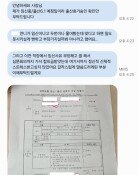The Korean Government Keeps Silent When It Is Necessary to Express Its Discomfort
The Korean Government Keeps Silent When It Is Necessary to Express Its Discomfort
Posted April. 14, 2005 23:15,
By abstaining from voting once again, as it did last year, on the resolution on North Korean Human Rights at the U.N. Commission on Human Rights (UNCHR) on April 14, the Korean government has become a target of criticism for turning away from the poor state of North Koreas human rights.
Prior to the voting, the ambassador to Koreas Permanent Mission to the UN in Geneva, Choi Hyuk, explained the Korean governments stance on the matter and abstained from voting on the North Korean Human Rights Act, jointly led by the European Union (EU) and Japan, at the 61st UNCHR in Geneva, Switzerland, at 11:00 p.m. (Korean time). The resolution was adopted through the approval of the majority of the 53 members of the UNCHR.
Mr. Choi said in an official statement, The Korean government has been deeply concerned there has been no progress made on the status of North Koreas human rights over the past one year, adding, The Korean government hopes to see North Korean authorities make an earnest effort in order to improve its human rights situation.
However, he noted, The Korean government has been trying to establish a system of reconciliation and cooperation on the Korean Peninsula, to peacefully resolve the North Korean nuclear program, and to build up confidence between the two Koreas. He added, Taking the special relationship between South Korea and North Korea into consideration, the Korean government has decided to abstain from voting.
The Korean government explained its position on the issue after forfeiting its vote on the North Korean Human Rights Resolution at the UNCHR in 2004, and it did not take part in the voting in 2003 when the resolution was first adopted.
This years resolution runs as follows: North Korea has to stop immediately its systematic, wide-ranging, and severe human rights violations. It has to provide the international community with information related to its human rights situation. It has to guarantee the activity of a special rapporteur on North Korean human rights. It has to ensure that the Japanese nationals it has kidnapped are immediately returned to their home. Also, the resolution requested that, unless the status of North Korean human rights improves, the issue be dealt with by the U.N. General Assembly.
Concerning the Korean governments abstention, Yoon Yeo-sang, head of the Information Center for North Korean Human Rights, criticized, Despite President Roh Moo-hyuns statement that in South Koreas relations with North Korea, South Korea sometimes needs to express its discontent and criticism, South Korea has continuously ignored the matter of North Korean human rights.
On the same day, Pastor Seo Kyung-seok, chairman of the Commission on Human Rights within the Christian Council of Korea (CCK), pointed out at the CCKs Committee for North Korea Policy held in the 100th Anniversary Memorial Hall of the Korea Church in Seoul, In the international community, the Korean government is being alienated as a government that has turned its face away from the pitiable condition of fellow Koreans, adding, If Korea continues to keep silent on the matter of North Korean human rights, apart from the cooperation between South Korea and the U.S., its isolation from the international community will be inevitable.
Jong-Koo Yoon jkmas@donga.com kimcs@donga.com
Headline News
- N. Korea launches cyberattacks on S. Korea's defense companies
- Major university hospital professors consider a day off each week
- Italy suffers from fiscal deficits from ‘Super Bonus’ scheme
- Inter Milan secures 20th Serie A title, surpassing AC Milan
- Ruling and opposition prioritize spending amid tax revenue shortfalls







